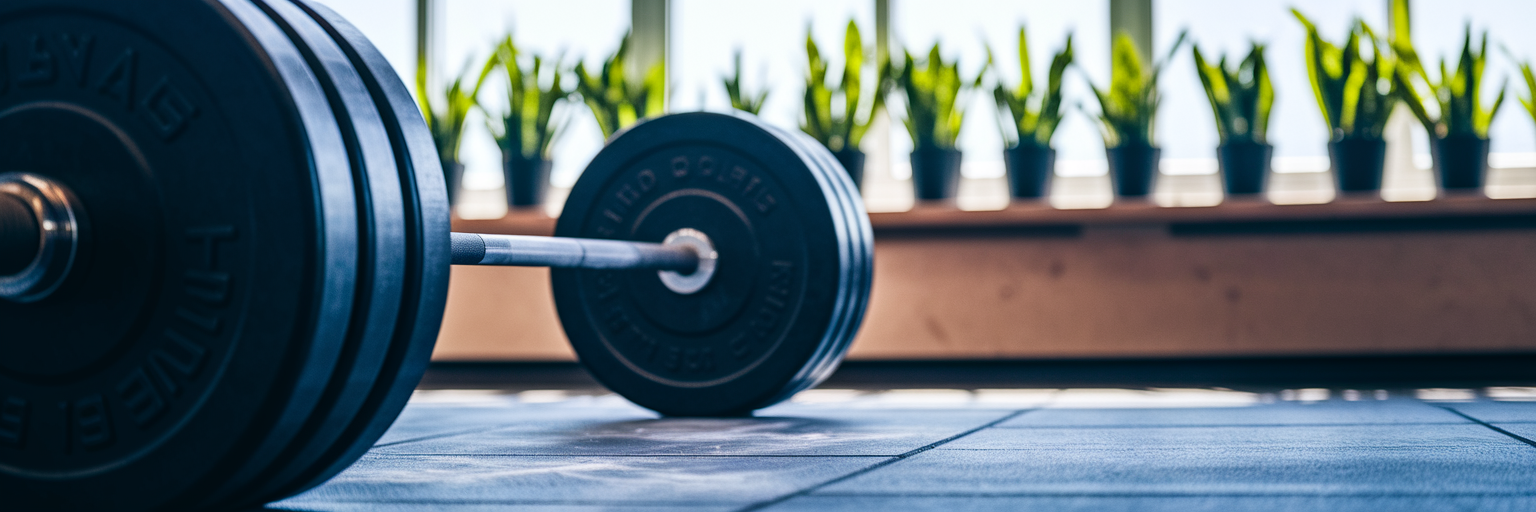As a plant-based athlete, you’re already dedicated to fueling your body with intention. But what if you could get more out of every single workout? Creatine monohydrate is one of the most effective tools for doing just that, especially for those who don’t eat meat. Let’s explore the science behind how it works and why it’s a key supplement for building strength on a plant-based diet.
Understanding Your Body’s Energy Currency
Here’s a fascinating thought: your muscles only store enough energy for a few seconds of all-out effort. Whether you're lifting a heavy barbell or sprinting, your performance after those initial seconds depends entirely on how quickly you can regenerate that fuel. This is where creatine enters the picture as a crucial player in your body's energy system.
Think of creatine as a rapidly recharging power bank for your muscles. It’s a natural compound that helps recycle your body’s primary energy currency, a molecule called Adenosine Triphosphate (ATP). Every muscle contraction uses ATP, but our stored supply is incredibly small. Once it’s used, it becomes ADP (Adenosine Diphosphate), which is like a drained battery.
This is the moment that explains how does creatine work. Your body stores creatine as phosphocreatine. This molecule quickly donates its phosphate group to the "drained" ADP, instantly turning it back into high-energy ATP. This rapid recycling process allows you to sustain high-intensity effort for longer, pushing through those extra reps that truly stimulate muscle growth.
The Performance Gap for Plant-Based Diets

Now that we understand creatine’s role as an energy recycler, it’s important to see why this matters so much for plant-based athletes. The main dietary sources of creatine are red meat and fish. As a natural result of avoiding these foods, vegetarians and vegans typically have lower baseline creatine stores in their muscles compared to their omnivorous counterparts.
This isn't a flaw in your diet. It's simply a biological reality. However, these lower stores can have tangible effects on your training. Have you ever felt like you hit a strength plateau sooner than you expected? Or noticed a lack of explosive power during your final, most important reps? Lower creatine levels could be a contributing factor.
This is where supplementation becomes a powerful strategy for plant-based muscle building. By adding creatine to your routine, you can bridge this nutritional gap, saturate your muscles, and essentially level the performance playing field. It’s not about fixing a problem but about optimizing your potential. For many, it’s the missing piece that helps them fully express the strength they’ve worked so hard to build. Exploring topics like this is part of a holistic approach to nutrition, and you can find more insights on our blog.
Research-Backed Gains in Strength and Power
The connection between creatine and performance isn't just theoretical. It's one of the most studied topics in sports nutrition. When your muscles are fully saturated with creatine, you can perform more work during your training sessions. This means more reps and sets at a challenging weight, which is the primary driver of long-term muscle and strength gains.
Interestingly, the benefits are often more pronounced for creatine for vegan athletes. Because their starting levels are lower, they have more room for improvement. In fact, a 2024 meta-analysis published in Sports Medicine revealed that vegan athletes can experience a significantly greater relative performance boost from creatine compared to omnivores.
What does this look like in the gym? It could mean adding 10 pounds to your squat or pushing out two extra reps on the bench press. Beyond just energy, one of the key creatine monohydrate benefits is a process called cell volumization. Creatine draws water into your muscle cells, hydrating them and making them fuller. This isn't just temporary "water weight"; it’s a signal that tells your body to initiate muscle protein synthesis, contributing directly to growth.
| Performance Metric | Baseline (No Supplementation) | After 8 Weeks with Creatine | Potential Improvement |
|---|---|---|---|
| Barbell Squat (5-Rep Max) | 225 lbs | 240 lbs | +6.7% |
| Bench Press (Reps at 80% 1RM) | 6 reps | 8 reps | +33% |
| Peak Power Output (Cycle Sprint) | 950 watts | 1025 watts | +7.9% |
| Total Work Volume (Per Session) | 5,000 lbs | 5,800 lbs | +16% |
Note: These figures are illustrative examples based on typical outcomes reported in clinical research on creatine supplementation. Individual results will vary based on training, diet, and genetics.
Improving Endurance and Accelerating Recovery

While creatine is famous for boosting strength, its advantages don't stop there. The same energy-recycling process that fuels heavy lifts also enhances muscular endurance. During longer sets, that familiar muscle "burn" comes from an accumulation of metabolic byproducts. Creatine helps buffer this buildup, allowing you to push harder for longer before fatigue sets in.
Perhaps even more importantly, creatine plays a significant role in recovery. Intense training causes micro-tears in muscle fibers and inflammation, which leads to delayed onset muscle soreness (DOMS). Research shows that creatine supplementation can reduce these markers of muscle damage, meaning you feel less sore and are ready to train again sooner. Faster recovery isn't just about comfort; it's about consistency. When you can return to the gym feeling strong, you can train more frequently and with higher quality, which is the real foundation of long-term progress. Of course, faster recovery is also about refueling your body with the right nutrients, like those found in high-protein vegan meals.
In short, creatine helps you:
- Sustain high-intensity effort for longer during workouts.
- Reduce muscle soreness and damage after training.
- Recover faster between sessions, allowing for more consistent training.
- Improve overall training quality and volume over time.
Debunking Common Myths About Creatine
Despite being one of the most researched supplements on the planet, creatine is still surrounded by myths. Let's clear up a few of the most common ones so you can feel confident in your choice.
Myth 1: Creatine Damages Your Kidneys
This is the most persistent myth, but it has been thoroughly debunked. Decades of research involving thousands of participants have consistently shown that creatine supplementation at recommended doses does not harm kidney function in healthy individuals. The confusion often arises because creatine slightly increases creatinine levels in the blood, which can be a marker for kidney issues. However, in this context, it's a harmless byproduct of creatine metabolism, not a sign of damage.
Myth 2: Creatine Causes Dehydration and Cramping
This myth is based on a misunderstanding of how creatine works. Creatine actually pulls water into your muscle cells, a process that is beneficial for hydration, performance, and muscle growth. It does not "steal" water from the rest of your body. As with any athlete, staying properly hydrated throughout the day is important, but creatine itself does not cause dehydration or cramping. In fact, some studies suggest it may even help with thermoregulation.
Myth 3: The Weight Gain Is Just 'Water Weight'
When you first start taking creatine, you may notice a slight increase on the scale. This is due to the cell volumization we mentioned earlier—the process of pulling water into your muscles. But it's a mistake to dismiss this as "just water weight." This cellular swelling is a positive anabolic signal that supports muscle protein synthesis and long-term growth. It's a sign the creatine is working, not a sign of unwanted bloating.
When sourced from a reputable brand, creatine monohydrate is one of the safest and most effective vegan athletic supplements available. If you have more questions, our FAQ page is a great resource.
How to Use Creatine for Optimal Results
Getting started with creatine is simple. There’s no need for complicated protocols or timing strategies. The most important factor is consistency. Here’s a straightforward guide to making it part of your routine.
- Choose Creatine Monohydrate: Stick with the most proven form for reliable results. It's the most researched, effective, and affordable version, making it the best creatine for athletes.
- Decide on Loading (Optional): To saturate your muscles quickly, you can take 20 grams per day (split into four 5-gram doses) for 5–7 days. However, this isn't necessary. You'll reach the same saturation point by just starting with the maintenance dose; it will just take a few weeks longer.
- Take Your Maintenance Dose: Consume 3–5 grams every day to keep your muscles saturated with creatine. This small daily dose is all you need to maintain the benefits.
- Stay Consistent: The key to seeing results is taking creatine daily, even on your rest days. This ensures your muscle stores stay full. Timing isn't critical—just find a time that works for you, like mixing it into your post-workout shake or morning smoothie, and stick with it.
When you're ready to start, it's important to choose a pure, third-party tested supplement. You can find our high-quality Creatine Monohydrate here to ensure you're getting a clean and effective product to support your goals.



